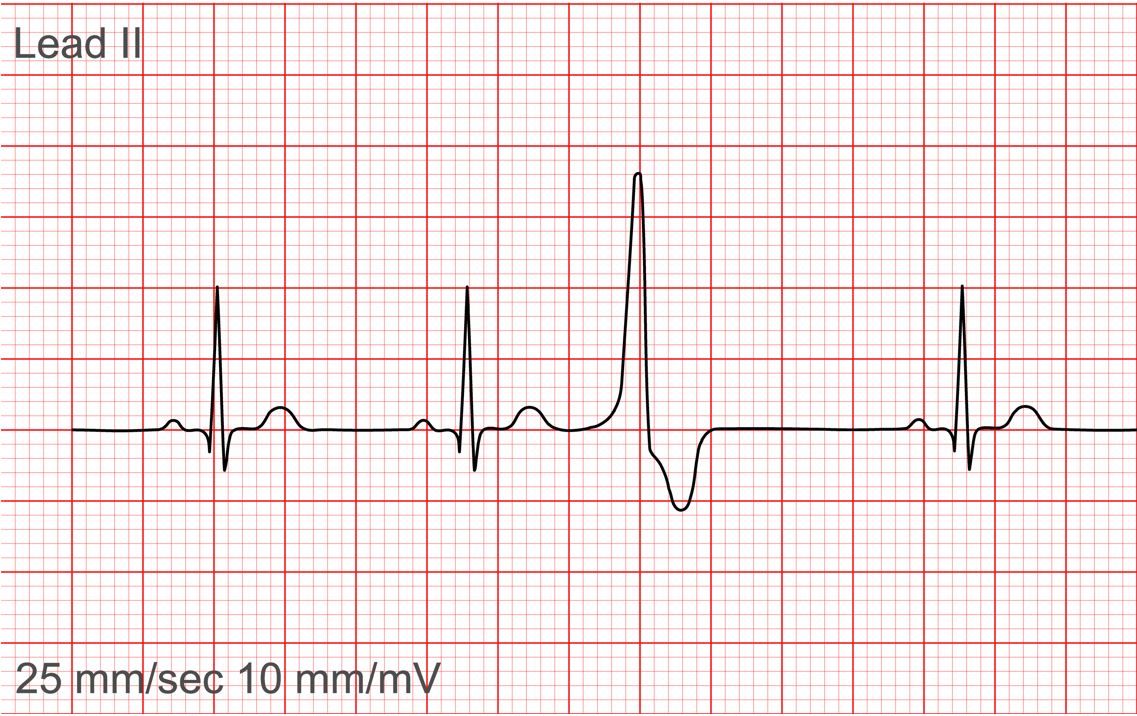- Clinical Technology
- Adult Immunization
- Hepatology
- Pediatric Immunization
- Screening
- Psychiatry
- Allergy
- Women's Health
- Cardiology
- Pediatrics
- Dermatology
- Endocrinology
- Pain Management
- Gastroenterology
- Infectious Disease
- Obesity Medicine
- Rheumatology
- Nephrology
- Neurology
- Pulmonology
Coffee Had Negligible Effect on Atrial Arrhythmias but Was Linked to PVCs, Study Finds
AHA 2021. Coffee increased PVCs by 54% in regular coffee drinkers and decreased sleep by more than 30 minutes; it also significantly increased daily step count and slightly improved SVT.
Coffee consumption did not increase atrial arrhythmias but was associated with higher incidence of premature ventricular contractions (PVCs), according to findings of a unique trial that used real-time monitoring and an N-of-1 design.
The study also found no increase in premature atrial contractions (PACs), or supraventricular tachycardia (SVT) associated with coffee consumption, and, researchers say, they observed less SVT with coffee consumption in their per protocol analysis.
Premature ventricular contraction
©JYFotoStock/stock.adobe.com

Findings from the study, the Coffee and Real-time Atrial and Ventricular Ectopy (CRAVE), led by Greg Marcus, MD, MAS, professor of medicine at University of California, San Francisco, were reported during a late-breaking science session at the American Heart Association (AHA) Scientific Sessions 2021, held virtually November 13-15, 2021.
“These data add to the growing evidence that those with supraventricular tachycardias or atrial fibrillation . . . or at risk for those diseases, should not necessarily avoid drinking coffee,” said Marcus in a press conference with media.
While there are professional society guidelines that warn caffeine may trigger arrhythmias, noted Marcus in the press conference, data are mixed and there is even accumulating evidence that suggests coffee consumption could lower risk for arrhythmias as well as diabetes and mortality.
Most coffee studies, Marcus et al point out in the study, are observational, rely on self-report, and examine effects over time so provide little information on immediate consequences. CRAVE, they explain, was designed to “randomize trials within individuals” and to capture the effect of coffee in real time. “Wearable sensors,” said Marcus in an interview with Patient Care, “can enable us to apply very rigorous research methods to ambulatory individuals.”
The researchers enrolled 100 adults with no prior arrhythmias or known cardiovascular disease. To track heart rhythm, physical activity and sleep, and serum glucose, each participant was fitted with a continuously recording ECG device (ZioPatch, iRhythm Technologies), a wrist-worn Fitbit Flex 2, and a continuous glucose monitor (Dexcom), respectively. All participants downloaded a smartphone mobile application, a feature of the UCSF Eureka research platform, to collect geolocation data. Marcus et al also genotyped participant DNA from saliva samples to assess caffeine metabolism-related nucleotide polymorphisms.
Participants were randomly assigned to consume or avoid coffee on a daily basis for 14 days. Assignment for the following day was communicated by text the evening before and reminder texts were sent the next morning.
To track adherence to the day's specific randomization assignment, participants pressed a Zio patch on the ECG monitor to time stamp each instance of coffee consumption; they completed daily surveys to recount the coffee consumed the day before; trips to coffee shops were geotracked and participants were reimbursed for appropriate receipts for coffee purchases.
Primary outcomes were daily counts of PVCs and PACs.
According to the study abstract, the 100 participants had a mean age of 38 ± 13 years, were 51% women, and 48% non-Hispanic White. At baseline, approximately 30% reported drinking at least one cup of coffee per day, with 21% reporting 2-3 cups per day.
When adherence with randomization assignment was assessed, compliance was revealed for all metrics employed (p<.01), according to the study abstract.
Results of intention-to-treat analyses revealed that random assignment to consume coffee was associated with:
- A 54% increase in PVCs (95% CI 19-200% more PVCs, p=.001) but with fewer episodes of SVT
- 1058 additional steps per day, as tracked by Fitbit devices (95% CI 441-1,675, p=.001)
- 36 fewer minutes of sleep per night, as recorded by Fitbit, (95% CI 22-50 minutes less sleep, p<.001)
Per protocol analysis found that each additional cup of coffee consumed daily after the first was associated with:
- 3% more daily PACs (1-6% more PACs, p=.006)
- 587 more steps per day (95% CI 355-820, p<.001)
- 18 fewer minutes of sleep per night (95% CI 13-23, p<.001)
The authors report no significant effects on PACs and no differences were seen in continuously recorded glucose measured when the study participants consumed versus avoided coffee.
Regarding caffeine metabolism, Marcus et al found that those whose genetic variants favored rapid metabolism exhibited more PVCs when more caffeinated coffee was consumed. Slower rates of caffeine metabolism were associated with greater amounts of sleep lost on days when coffee was consumed.
“Coffee, which is one of the most commonly consumed beverages in the world, appears to have both positive and negative health implications,” said Marcus in speaking with the media.
“These data provide no evidence that coffee will increase the risk of supraventricular tachycardia arrhythmias, including AF. For ventricular arrhythmias, these data suggest coffee may be harmful. To increase physical activity, coffee may be beneficial. It’s a heterogenous, complex and multifaceted effect.”
Reference: Marcus G, Rosenthal DG, Nah G, et al. The coffee and real-time atrial and ventricular ectopy (CRAVE) trial. Presented at the American Heart Association Scientific Sessions 2021.
